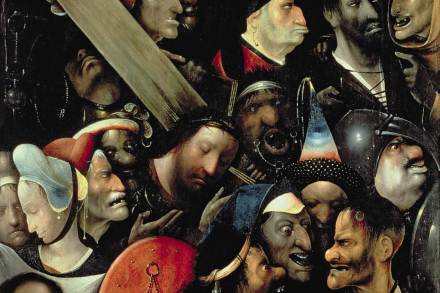We are the mockers, too
Hieronymus Bosch had a distinctive view of our debased humanity, most distinctly expressed in his paintings of Christ’s Passion, says Michael Prodger Carl Jung described the painter Hieronymus Bosch as ‘the master of the monstrous…the discoverer of the unconscious’. He was, however, only half right. While it is true that Bosch has no peers as a conjurer of phantasms and grotesques, he was no proto-psychologist: he was a man of his times. Bosch lived c.1450–1516 so his times were the late Middle Ages and there was no such thing as the unconscious then — there was the Bible. All human behaviour, good or ill, could be ascribed either to God
















